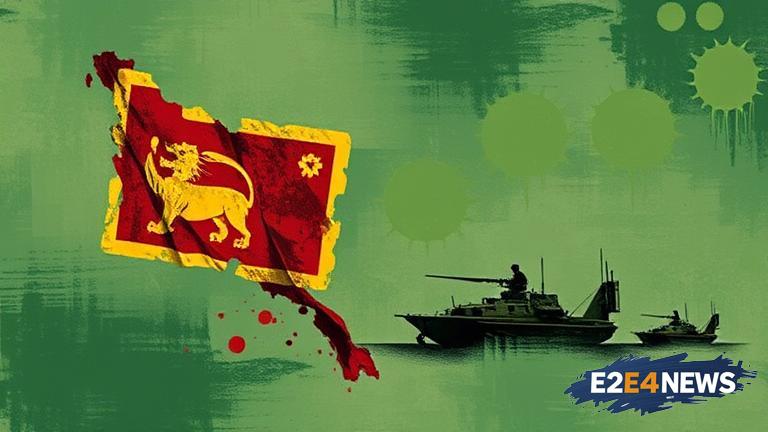Sri Lanka, an island nation located in the Indian Ocean, has a long and tumultuous history of occupation, with various empires and colonial powers vying for control over the centuries. The Tamil people, who have inhabited the island for over 2,000 years, have faced numerous challenges and struggles in their quest for self-determination and independence. The occupation of Sri Lanka by the British in the 19th century had a profound impact on the island’s politics, economy, and culture. The British exploited Sri Lanka’s natural resources, imposed their language and customs, and created a system of governance that favored the Sinhalese majority over the Tamil minority. The Tamil people, who had their own distinct culture and language, were subjected to discrimination and marginalization, leading to growing tensions and resentment. The Sri Lankan independence movement, which gained momentum in the early 20th century, was marked by a series of protests, demonstrations, and armed struggles. The Tamil people, who had been seeking greater autonomy and recognition, were met with resistance and violence from the Sinhalese-dominated government. The 1983 anti-Tamil riots, which resulted in the deaths of thousands of Tamil civilians, marked a turning point in the conflict, with many Tamil youths taking up arms to fight for their rights. The Liberation Tigers of Tamil Eelam (LTTE), a militant organization that emerged in the 1970s, became a dominant force in the Tamil nationalist movement, advocating for a separate state for the Tamil people. The Sri Lankan government, which viewed the LTTE as a terrorist organization, responded with military force, leading to a protracted and bloody conflict that lasted for over two decades. The war, which ended in 2009, resulted in the deaths of tens of thousands of people, the displacement of hundreds of thousands, and widespread destruction of infrastructure and property. The Tamil people, who had suffered greatly during the conflict, continue to face challenges and struggles in the post-war period, including land grabs, militarization, and cultural erasure. The Sri Lankan government, which has been accused of war crimes and human rights abuses, has failed to provide adequate compensation and reparations to the victims of the conflict. The international community, which has been criticized for its inaction during the conflict, has a responsibility to ensure that those responsible for war crimes are held accountable and that the rights of the Tamil people are protected. The occupation of Sri Lanka is a complex and multifaceted issue, with deep historical roots and ongoing consequences. It is essential to understand the context and nuances of the conflict, as well as the perspectives and experiences of the Tamil people, in order to work towards a just and lasting peace. The Tamil Guardian, a news organization that has been documenting the conflict and its aftermath, has played a crucial role in shedding light on the occupation and its impact on the Tamil people. Through its reporting and analysis, the Tamil Guardian has provided a platform for the voices and stories of the Tamil people to be heard, and has helped to raise awareness about the ongoing struggles and challenges faced by the community. The occupation of Sri Lanka is a reminder of the importance of self-determination, human rights, and social justice, and the need for ongoing solidarity and support for marginalized and oppressed communities around the world. As the Tamil people continue to struggle for their rights and freedoms, it is essential that their voices are heard and their stories are told, and that the international community takes action to ensure that justice and accountability are served. The occupation of Sri Lanka is a powerful reminder of the need for ongoing vigilance and activism in the pursuit of human rights and social justice, and the importance of supporting and amplifying the voices of marginalized and oppressed communities. The Tamil people, who have faced unimaginable suffering and hardship, deserve justice, recognition, and respect, and it is the responsibility of the international community to ensure that their rights are protected and their dignity is upheld. The occupation of Sri Lanka is a complex and ongoing issue, with deep historical roots and ongoing consequences, and it is essential that it is approached with sensitivity, nuance, and understanding. By listening to the voices and stories of the Tamil people, and by working towards a just and lasting peace, we can help to create a more just and equitable world, where all people can live with dignity and respect.
